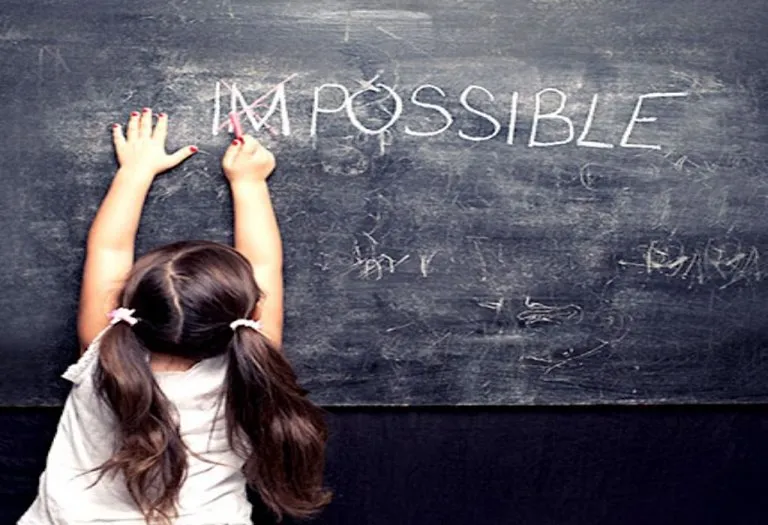Why Should Parents Stop Comparing Their Child to Others?

- Why Do Parents Compare Their Children to Others?
- What Parents Need to Understand Before Comparing Their Kids to Others?
- Negative Impacts of Child Comparison
- What Are the Positive Comparison Approaches That Can Help Children?
- FAQs
Many parents compare their children to other kids with the intention of motivating them to excel. But why you should stop comparing your child to others, after all, the intention is for them to excel? Well, comparing a child with other kids can have the opposite effect and the child who is being compared may feel low as it may hurt their self-esteem. The spirit of competitiveness is good in children, and it can motivate them to do good and be good, but teaching them to be better than other kids can sometimes prove to be counterproductive. It causes deep-set emotional bruises, which are difficult to heal and can result in aggression, antagonism, and resentment. All these qualities are detrimental to the gradual growth and progress of children. Let’s deep dive into the issue and learn how to stop comparing your child to others.
Why Do Parents Compare Their Children to Others?
Parents dream of seeing their children accomplishing success in all endeavours but little do they realise that this can never be achieved by comparing kids. It is quite a prevalent practice for parents to make every possible effort to bolster the performance of their child. They feel that this will enhance children’s learning and skills, but on the contrary, it affects their confidence level negatively.
What Parents Need to Understand Before Comparing Their Kids to Others?
The sole reason why parents compare their kids to others is to instigate the spirit of competition. They might feel that it is the right way to bring out the latent potential and capabilities in their little ones to excel over others. But parents need to understand that comparison is not the only driving force to enable kids to perform their best. Each individual is unique and blessed with different strengths. Kids’ interests and talents bloom at a varied pace. If parents constantly keep expressing their displeasure or unhappiness with their kids’ poor performance, it will break and not build their self-confidence. Some other points that parents need to understand are given below:
1. Children Should Think on Their Own
Parents must spare some time to listen to their children. They must try to understand their thought process. As individual human beings, as soon as kids learn to express their likes and dislikes, they should only be guided and not be influenced by anyone’s thoughts and opinions. Children should be allowed to think critically and make decisions on their own, which is how they will develop mutual trust, respect, and love.
2. Children Are Not Decorative Pieces
Children should not be treated as accessories by parents. They cannot be treated as objects to show off in social circles. By setting unrealistic goals, they tend to exploit their own children bring disappointment for themselves and ruin the lives of their own kids. They should be treated with respect as independent individuals and need to be loved and understood.
3. Education Is Not a Special Favour But a Right
Some parents think they have done their kids a favour by putting them in good, expensive schools. Acquiring education is every kid’s right, and it is the responsibility of the parents to provide education. Parents should understand that the primary goal of the best education is to create responsible and self-reliant individuals and not qualify them for acquiring a job and earn money.
Negative Impacts of Child Comparison

Even when parents want to refrain from comparing their kids to others, they, unfortunately, end up doing so. Though it seems to be an inevitable human trait, parents need to restrain that impulse. Children do not respond well to negative criticism, and comparison to others is even more debasing. The negative impact of comparison is as given below:
1. Increases Sibling Rivalry
If parents compare elder kids to their younger siblings, it will foster rivalry, and the older kids might then start teasing, fighting, hitting and behaving aggressively with the younger ones.
2. Instils Detachment
When children are compared to their siblings, friends or cousins, they feel insecure and try to maintain distance from their parents. It can also lead to behavioural or developmental problems later on as they mature.
3. Suppresses Talents
When kids are not appreciated and are constantly compared to others, their talent will not bloom, and they will eventually lose their potential and talent.
4. Leads to Carefree Attitude
If kids notice their parents appreciating other kids more, they will feel ignored and will never try to please their parents.
5. Increases Hesitation and Impacts Social Interactions
If kids receive constant ridicule and taunts from their parents, they will gradually start avoiding public interaction in the presence of their parents.
6. Diminishes Self Worth
Children’s self-confidence is affected when they are compared to other children. If a child feels that they are ‘good for nothing’, it can deteriorate their performance even further.
7. Destroys Self-Esteem
Kids’ growth gets hampered when they start believing they are not capable of performing well. They will always think that they will never be able to match up to the expectations of their parents.
8. Builds Stress
Parents must not pressurise their children to perform and burden them with extreme expectations. They should instead find solutions and help kids get over their reservations by communicating with them.
What Are the Positive Comparison Approaches That Can Help Children?

Negative criticism is a detrimental factor in children’s growth and development. Certain ways of positive comparison are given below:
1. Give Unconditional Love and Support
Appreciation in public will boost kids’ morale. Children should be spoken to respectfully and given lots of love and support.
2. Set Realistic Expectations
Parents must not commit the mistake of setting unrealistic goals for their children. They should instead try to understand the inherent potential of their kids and help them excel in their fields of interest.
3. Appreciate the Strengths
Whatever task kids do well should be appreciated generously. Liberal appreciation will help them gain the confidence to face the world.
4. Help Children Cope With Their Weaknesses
When parents know their kids’ weak areas, they must support and help the kids to help them overcome their weaknesses. Though it is not easy, it can be achieved with unconditional support and motivation.
5. Do Not Compare; Rather Set Benchmarks
If parents set realistic benchmarks rather than criticising their children, they will see a considerable improvement in their performance. At this stage, building confidence and self-worth are of utmost importance.
FAQs
1. Is it normal to worry about my child’s future when I see others achieving more?
Yes, it’s entirely normal for parents to feel concerned about their child’s future, especially when comparing their child’s achievements to those of others. However, it’s important to remember that every child develops at their own pace and has their own unique strengths and abilities. Comparing your child to others can lead to unnecessary stress and pressure for both you and your child. Instead, focus on nurturing your child’s talents, providing support, and fostering a positive environment where they can thrive and grow.
2. What can I do support my child’s achievement instead of comparing them with others?
Celebrate their successes, no matter how small, and encourage them to pursue their interests and passions. By focusing on your child’s individual journey and providing unconditional love and support, you can help them build the confidence and resilience they need to navigate their future with optimism and determination. If you find yourself struggling with these feelings, consider reaching out to a child psychologist or counsellor who can provide guidance and support tailored to your specific concerns.
The trait of comparing and competing is more common among parents than children. The undue pressure of performance is most degrading for kids and produces a negative outcome. Parents must not rob the joy out of their kids’ lives and allow them the space to grow and prove their merit. No one is perfect at encompassing excellence in all the fields of performance, be it sports or academics. However, a positive approach and motivating kids without comparing them with other kids can help them do well and become confident and successful individuals.
Also Read:
Ways for Raising a Tech Savvy Child
Ways to Help Your Child Make Friends
How to Support Your Kid After Trauma?
How to Make Your Child Interested in Studying?
How to Deal With Anti-Social Behaviour in Children?
Was This Article Helpful?
Parenting is a huge responsibility, for you as a caregiver, but also for us as a parenting content platform. We understand that and take our responsibility of creating credible content seriously. FirstCry Parenting articles are written and published only after extensive research using factually sound references to deliver quality content that is accurate, validated by experts, and completely reliable. To understand how we go about creating content that is credible, read our editorial policy here.















.svg)
















